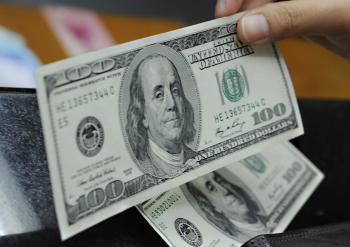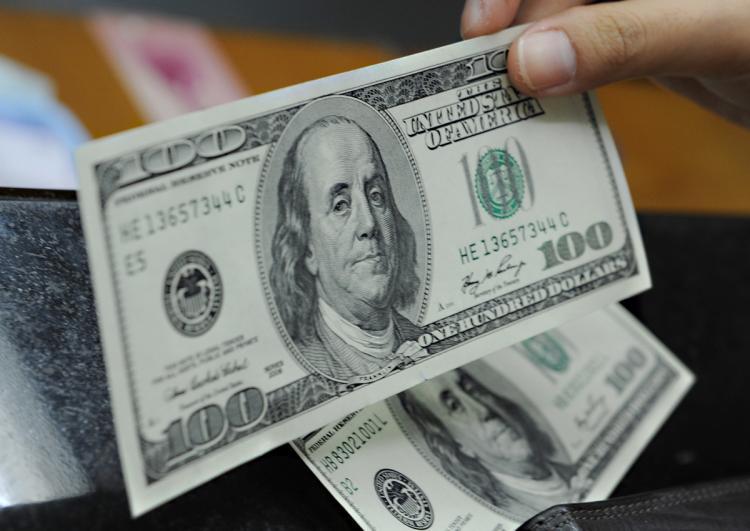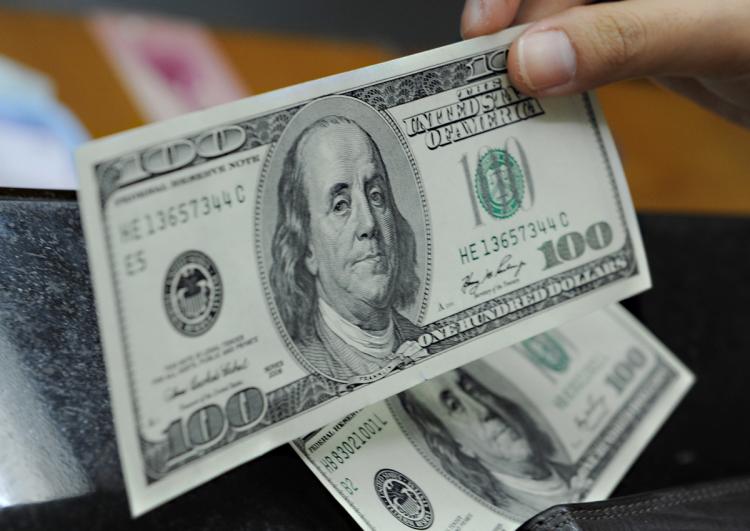Federal Reserve Chairman Benjamin S. Bernanke has continued his defense over the weekend of the Fed’s decision last week to pump more than $600 billion into the economy by June 2011.
Bernanke—and his predecessor Alan Greenspan—were at a Fed panel discussion on Saturday in Atlanta, Ga., where he defended his policies against critics that say the new stimulus measures would cheapen the U.S. dollar and drive up inflation.
“I have rejected any notion that we are going to raise inflation to a super-normal level in order to have effects on the economy,” he said at the conference, according to a Bloomberg report.
“It’s critical for us to maintain inflation at an appropriate level,” he continued.
Last Wednesday, Fed officials decided to spend around $600 billion on purchasing long-term Treasury bonds over the next several months, as well as continuing a previous mortgage-backed asset purchase program first enacted in August.
With the unemployment rate hovering just below the 10-percent threshold, the Fed announced weeks ago that a new round of stimulus measures might come in November. Given the economic situation, the Fed has the unenviable task of trying to boost economic growth while alleviating inflationary pressures—two somewhat mutually exclusive events, according to some economists.
In total, with the “quantitative easing” program, as it was called, the Fed could purchase up to $1 trillion in assets.
But by adding that much liquidity into the markets—which has almost the same effect as “printing money” by keeping interest rates low—critics say that the Fed’s actions could drive up inflation and sink the U.S. dollar, angering America’s trading partners.
“Quantitative easing is nothing more than the Federal Reserve printing money and creating inflation,” said a statement from the National Inflation Association (NIA). “The Federal Reserve is doing everything in its power to push stock market prices up so that the government can take credit for an ‘economic recovery,’ but as NIA has been warning for years, inflation gravitates most toward the goods that Americans need most in order to live and survive.”
Bernanke has for days defended the Fed’s plan. In an opinion piece that appeared in the Washington Post last Thursday morning, Bernanke said that similar past actions have helped the economic recovery.
“This approach eased financial conditions in the past, and so far, looks to be effective again,” he wrote in his commentary. “Stock prices rose and long-term interest rates fell when investors began to anticipate the most recent action.”
As a result, mortgage rates will be lower and will make housing more affordable, lower corporate bond rates will encourage investing, and higher stock prices will increase confidence and wealth, he said.
Goldman Sachs, in response to Bernanke’s comments, said that his op-ed piece is “forceful justification” of the quantitative easing.
Speaking in a business conference in Seoul, South Korea, former Fed Chairman Paul Volcker dispelled the idea that the latest Fed action would do much to help the U.S. economy recover.
The latest round of quantitative easing “is not the kind of action that’s likely to change the general picture that I’ve described as slow and labored recovery over a period of time,” Volcker told the audience according to an AP report.
Volcker was Fed chairman during the Jimmy Carter and Ronald Reagan administrations, and is also a member of President Barack Obama’s Economic Recovery Advisory Board.
Bernanke—and his predecessor Alan Greenspan—were at a Fed panel discussion on Saturday in Atlanta, Ga., where he defended his policies against critics that say the new stimulus measures would cheapen the U.S. dollar and drive up inflation.
“I have rejected any notion that we are going to raise inflation to a super-normal level in order to have effects on the economy,” he said at the conference, according to a Bloomberg report.
“It’s critical for us to maintain inflation at an appropriate level,” he continued.
Last Wednesday, Fed officials decided to spend around $600 billion on purchasing long-term Treasury bonds over the next several months, as well as continuing a previous mortgage-backed asset purchase program first enacted in August.
With the unemployment rate hovering just below the 10-percent threshold, the Fed announced weeks ago that a new round of stimulus measures might come in November. Given the economic situation, the Fed has the unenviable task of trying to boost economic growth while alleviating inflationary pressures—two somewhat mutually exclusive events, according to some economists.
In total, with the “quantitative easing” program, as it was called, the Fed could purchase up to $1 trillion in assets.
But by adding that much liquidity into the markets—which has almost the same effect as “printing money” by keeping interest rates low—critics say that the Fed’s actions could drive up inflation and sink the U.S. dollar, angering America’s trading partners.
“Quantitative easing is nothing more than the Federal Reserve printing money and creating inflation,” said a statement from the National Inflation Association (NIA). “The Federal Reserve is doing everything in its power to push stock market prices up so that the government can take credit for an ‘economic recovery,’ but as NIA has been warning for years, inflation gravitates most toward the goods that Americans need most in order to live and survive.”
Bernanke has for days defended the Fed’s plan. In an opinion piece that appeared in the Washington Post last Thursday morning, Bernanke said that similar past actions have helped the economic recovery.
“This approach eased financial conditions in the past, and so far, looks to be effective again,” he wrote in his commentary. “Stock prices rose and long-term interest rates fell when investors began to anticipate the most recent action.”
As a result, mortgage rates will be lower and will make housing more affordable, lower corporate bond rates will encourage investing, and higher stock prices will increase confidence and wealth, he said.
Goldman Sachs, in response to Bernanke’s comments, said that his op-ed piece is “forceful justification” of the quantitative easing.
Speaking in a business conference in Seoul, South Korea, former Fed Chairman Paul Volcker dispelled the idea that the latest Fed action would do much to help the U.S. economy recover.
The latest round of quantitative easing “is not the kind of action that’s likely to change the general picture that I’ve described as slow and labored recovery over a period of time,” Volcker told the audience according to an AP report.
Volcker was Fed chairman during the Jimmy Carter and Ronald Reagan administrations, and is also a member of President Barack Obama’s Economic Recovery Advisory Board.






